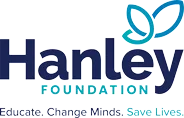As March ushers in National Drug and Alcohol Facts Week, it’s coinciding with Spring Break in Palm Beach County marks a crucial time for parents and teens to delve into substance use awareness. In this blog post, we will underline the importance of educating yourself and your teens on the associated dangers and provide some suggestions for entertaining activity ideas tied to developing talks about this vital topic. As Hanley Foundation’s goal is to raise awareness and promote candid discussion about the dangers of drug and alcohol abuse among youth, we’ll also provide some ways for you to better equip your teens for encountering the offers of drugs or alcohol from peers.
National Drug and Alcohol Facts Week (NDAFW) 2024, slated for March 18-24, is an annual initiative sponsored by the DEA’s partner, the National Institute on Drug Abuse. It coincides with Spring Break in Palm Beach County, providing an excellent opportunity to have open conversations with your teenagers regarding drug and alcohol usage. While adaptable programming for educators and youth leaders is available, ideas and activities through NFAFW and Hanley Foundation can provide parents with helpful materials to increase knowledge and awareness, encouraging skills critical for preventing substance use among young people.
Planning for a Difficult Conversation
Planning a chat with your teen about drug and alcohol usage requires careful thinking ahead of time. To ensure an open discussion, start with a calm and private environment. To deliver reliable information, thoroughly research current trends and facts. Create open-ended questions to foster discussion and allow your teen to express their ideas. Prepare to actively listen without judgment, creating trust. Anticipate emotional reactions while remaining patient and empathetic. Provide information about accessible resources for support, reinforcing a sense of direction. Finally, approach the issue with empathy and a willingness to establish an ongoing, helpful discourse.
Find more help for this important conversation from Hanley Foundation.
Starting a Spring Break Dialogue
Starting a talk with your kid about drug and alcohol usage during National Drug and Alcohol Facts Week, which coincides with Spring Break, provides an ideal opportunity. Begin casually, perhaps by sharing a news report or discussing Spring Break plans, and ask about their opinions or experiences. Keep it as part of a continuing discussion; initiating the conversation does not imply you have to reach a finish line within the topic. Maintain a nonjudgmental tone while emphasizing understanding and support. Assess your teen’s receptivity and be ready for follow-up discussions. Consistent, open communication fosters trust and encourages individuals to share their ideas and questions over time. You may also need to turn to indirect forms of communication, such as inviting your teen to create artwork or writing a short story inspired by the topic of drug and alcohol use.
Finding Drug and Alcohol Education Resources
Hanley Foundation provides educational resources for parents who are preparing to discuss the risks of substance use with their teens. If someone in your family is already affected by addiction, you can read ‘How Addiction Affects Children and Families’ ahead of a chat with your teen. If your teen asks questions about or shows an interest in information about opioid addiction, residential treatment, or mental health disorders that may coincide with an SUD, there is an abundance of resources to help you answer their questions or explore the material online together.
Supplement your conversation with facts for teens provided by Hanley Foundation.
Raising Awareness of the Risks of Prescription Medications
The dangers of teen drug usage go beyond illegal substances, with prescribed medications presenting a substantial threat. Opioids, in particular, can be extremely addictive and deadly if overused. It is critical for teenagers to recognize the risks of taking drugs from classmates or sharing their own prescriptions. To avoid unintentional exposure, drugs should be kept out of the reach of younger siblings and guests who may visit. Educating teenagers on appropriate medication practices, the potential consequences of opioid misuse, and the significance of proper storage helps to establish a safer atmosphere and discourages prescription drug abuse.
Promoting Healthy Alternatives to Substance Use
Introducing teenagers to healthy alternatives to drug use entails exhibiting a variety of activities that appeal to their interests. Art, yoga, athletics, journaling, filmmaking, and other activities allow people to express themselves, relieve stress, and grow personally. Encourage research and experimentation to find things that pique their interest and provide a sense of accomplishment. Teens are more inclined to accept alternatives that contribute to a healthier lifestyle while also serving as avenues for expression, creativity, and personal growth when the positive influence of these interests on mental well-being and general enjoyment is underscored.
Hanley Foundation is devoted to reshaping the narrative of addiction through prevention, advocacy, treatment, and recovery. For over three decades, our comprehensive prevention education programs have positively impacted Florida’s communities, making us the state’s largest prevention services provider. Proudly operating Hanley Center and Headwaters, our Palm Beach facilities offer private, confidential, and personalized addiction and mental health care, surrounded by a tranquil tropical setting promoting healing and recovery.



